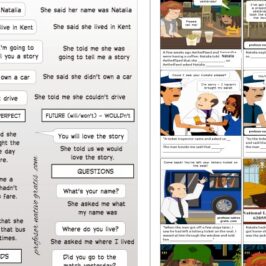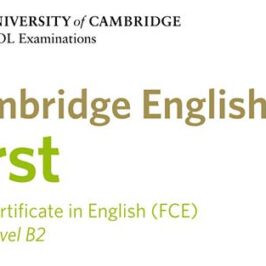Oxford Graduate, librarian and Jazz critic Larkin was chosen, almost two decades after his death in 1985, as Britain’s best-loved poet of the previous 50 years, and in 2008 The Times named him Britain’s greatest post-war writer. This poem, which deals with the fear of death and the sense of mortality, is among his better-known works.
ARE YOU A TEACHER? DOWNLOAD THE PDF. FOR YOUR CLASSES HERE!
Listen and fill in the gaps. Remember to double-click any word you do not know (or cannot pronounce):
After graduating from Oxford in 1943, Larkin became a librarian. His poems are marked by what critic Andrew Motion calls a very English, glum accuracy about emotions, places, and relationships, and what Professor Donald Davie described as lowered sights and diminished expectations. His poems – highly structured but flexible verse forms – were described by the ex-wife of Larkin’s publisher as a “piquant mixture of lyricism and discontent”, though anthologist Keith Tuma writes that there is more to Larkin’s work than its reputation for dour pessimism suggests.
Larkin’s public persona was that of the no-nonsense, solitary Englishman who disliked fame and had no patience for the trappings of the public literary life. Despite this, Larkin was chosen, almost two decades after his death, as Britain’s best-loved poet of the previous 50 years, and in 2008 The Times named him Britain’s greatest post-war writer.
Listen, and fill in the gaps:
I work all day, and get half- (1) __________ at night.
Waking at four to soundless dark, I (2) _________.
In time the curtain-edges will grow light.
Till then I see what’s really always there:
Unresting death, a (3) _________ day nearer now,
Making all thought impossible but how And where and when I shall myself die.
Arid interrogation: yet the dread
Of dying, and being dead,
Flashes afresh to (4) _____________ and horrify.
The mind blanks at the glare.
Not in remorse —The good not done, the love not given, time
Torn off (5) __________ —nor wretchedly because
An only life can take so long to climb
Clear of its wrong beginnings, and may never;
But at the total emptiness for ever,
The sure extinction that we travel to
And shall be lost in always.
Not to be here,
Not to be anywhere,
And soon; nothing more terrible, nothing more true.
This is a special way of (6) ____________ afraid
No trick dispels.
Religion used to try, That vast moth-eaten musical brocade
Created to pretend we never die,
And specious stuff that says
No rational being
Can fear a thing it will not feel, not seeing
That this is what we fear— no sight, no sound,
No touch or taste or smell, nothing to think with,
Nothing to love or link with,
The (7) _________ from which none come round.
And so it stays just on the edge of vision,
A small unfocused blur, a standing chill
That slows each (8) _______ down to indecision.
Most things may never happen: this one will,
And realisation of it rages out
In furnace-fear when we are (9) ________ without
People or drink. Courage is no good:
It means not scaring others. Being brave
Lets no one off the (10) _________.
Death is no different whined at than withstood.
Slowly light strengthens, and the room takes (11) _________.
It stands plain as a (12) ________, what we know,
Have always known, know that we can’t escape,
Yet can’t accept. One side will have to go.
Meanwhile telephones crouch, getting ready to ring
In (13) _________ offices, and all the uncaring
(14) _________ rented world begins to rouse.
The sky is white as (15) _________, with no sun.
Work has to be done.
Postmen like doctors go from house to house.
Answers, the complete poem, and notes, in the post- Leave your name and email to get the answers. You will also receive some free e-books and a monthly newsletter with free links and material. This data will not be used for any other purpose, and will be deleted if you finish the subscription. Click here for more information








Leave a Reply